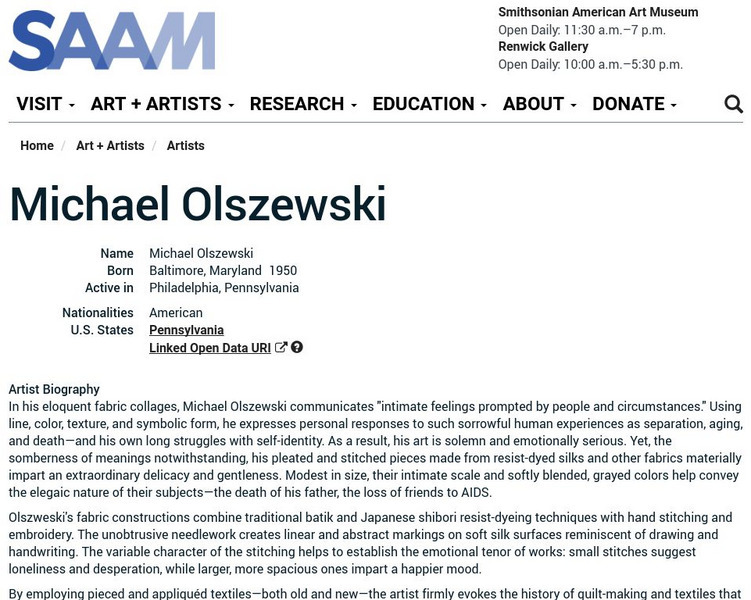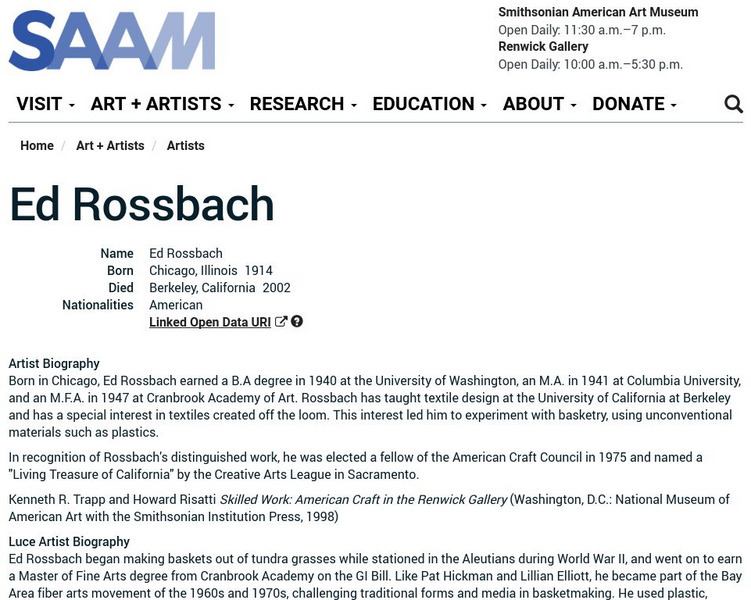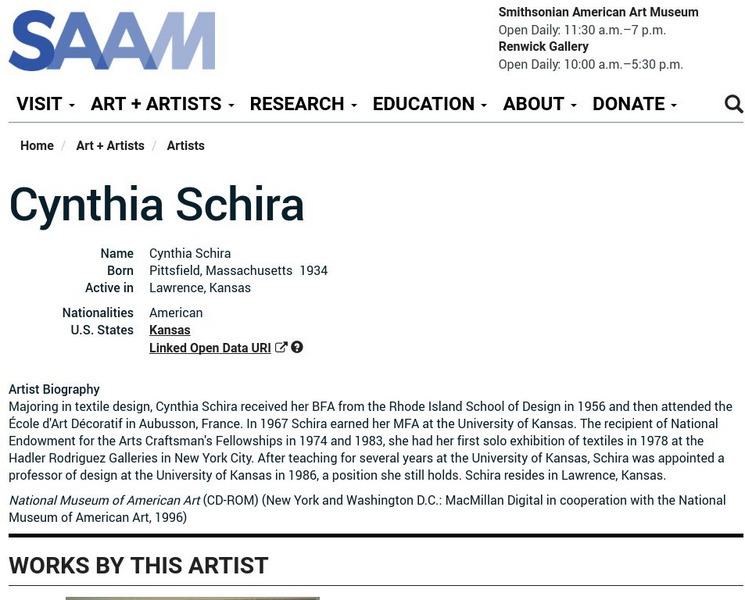Curated OER
Looking at French Decorative Arts: A Tapestry Fit For a King
Students discuss the use of tapestries, and examine the tapestry, Chariot of Triumph, and its symbols. They create their own designs for tapestries using symbols that represent their identities.
The Wharton Group
Discover France: Art Periods: Cubism
A detailed history and explanation of the ideologies behind cubism. Lots of cubism links as well.
Art Institute of Chicago
Art Institute of Chicago: The Divine Art: Four Centuries of European Tapestries
From the landing page, learn about tapestries, their function, and creation, including the production of dyes used to produce colors. Tapestries in the the Art Institute's collection are highlighted as the history of tapestries is...
Web Gallery of Art
Web Gallery of Art: Raffaelo Sanzio (Raphael)
A great online collection of the work of Renaissance master Raphael, who was famous for painting angels, Madonnas, and saints. View a huge high-quality collection of his drawings, paintings, and tapestries and read insightful analyses of...
Victoria and Albert Museum
Victoria and Albert Museum: Gothic Tapestry and Embroidery of England
From the Victoria and Albert Museum of London, this is an examination of the museum's collection of English Gothic tapestries and embroideries, spanning 1400 to 1547.
Smithsonian Institution
Smithsonian Education: Art to Zoo Spinning Yarns, Telling Tales About Textiles
A great resource for introducing different types of textiles and weavings to your students. A good amount of background information is included as well as a few simple learning activities.
The Wharton Group
Discover France: Art Nouveau
This site contains information on Art Nouveau in great detail. Find out what this term means, and how this "new art" adapted from old styles.
Smithsonian Institution
The Fabric of Moroccan Life
Click on the map of Morocco to discover the textiles that come from each particular region.
Smithsonian Institution
The Fabric of Moroccan Life Urban Textiles and Costumes
For hundreds of years, Moroccan women have composed fine embroideries and rugs using intricate designs that have been passed down through generations. View these exquisite textiles with large detailed images.
Smithsonian Institution
The Fabric of Moroccan Life Rural Weavings
Berber peoples, the indigenous inhabitants of rural Morocco, are known for their spectacular weaving. Shown on this website are 14 different examples.
Smithsonian Institution
The Fabric of Moroccan Life Find the Design
The designs found in Moroccan weaving and textiles often come from things of everyday life or from basic geometric shapes. Given on this site are seven examples of common designs for you to explore and enjoy.
Smithsonian Institution
Smithsonian American Art Museum: Lia Cook
As part of the Smithsonian Art Museum's database of artists, Lia Cook is described here along with information on his contributions to art through her work with weaving, textiles, and draped fabric.
Metropolitan Museum of Art
Metropolitan Museum of Art: The Unicorn Tapestries
The mythical beast, the unicorn, was depicted in tapestries of the 15th century. This website explores the unicorn tapestries in the collection of The Metropolitan Museum of Art through detailed images. A fun way to explore medieval art.
ArgentinaXplora.com
Argentinaexplora.com: Artesania Textil Y La Indumentaria
Spanish content; this is a page of nothing but images of various examples of traditional textiles and weavings from Argentina.
Art Cyclopedia
Artcyclopedia: Complete List of Textile Artists
ArtCyclopedia's complete list of textile artists from the 17th century to the present day. There are links to the artists' biography and works.
Khan Academy
Khan Academy: An Introduction to Decorative Arts at the J. Paul Getty Museum
Mr. Getty began acquiring European furniture in the 1930s and soon became an avid collector of European Decorative Arts. Today the J. Paul Getty Museum has an extensive collection primarily from the 17th and 18th centuries. Some of the...
ArtQuizz
Art Quizz: Tapestries
An illustrated quiz on tapestries, including questions about famous tapestries.
Other
Smith College: The Warp Weighted Loom, Worldwide
Site provides a picture and brief description of this type of loom which dates back to 7000 BCE. "From the beginning of Western history until the Middle Ages, the main weaving tool was this type of loom."
Smithsonian Institution
Smithsonian American Art Museum: Michael Olszewski
As part of the Smithsonian Art Museum's database of artists, Michael Olszewski is described here along with information on his contributions to art through textile design.
Smithsonian Institution
Smithsonian American Art Museum: Ed Rossbach
As part of the Smithsonian Art Museum's database of artists, Ed Rossbach is described here along with information on his contributions to art through his work with textiles and textile design.
Smithsonian Institution
Smithsonian American Art Museum: Cynthia Schira
As part of the Smithsonian Art Museum's database of artists, Cynthia Schira is described here along with information on her contributions to art through textiles and textile design.

















